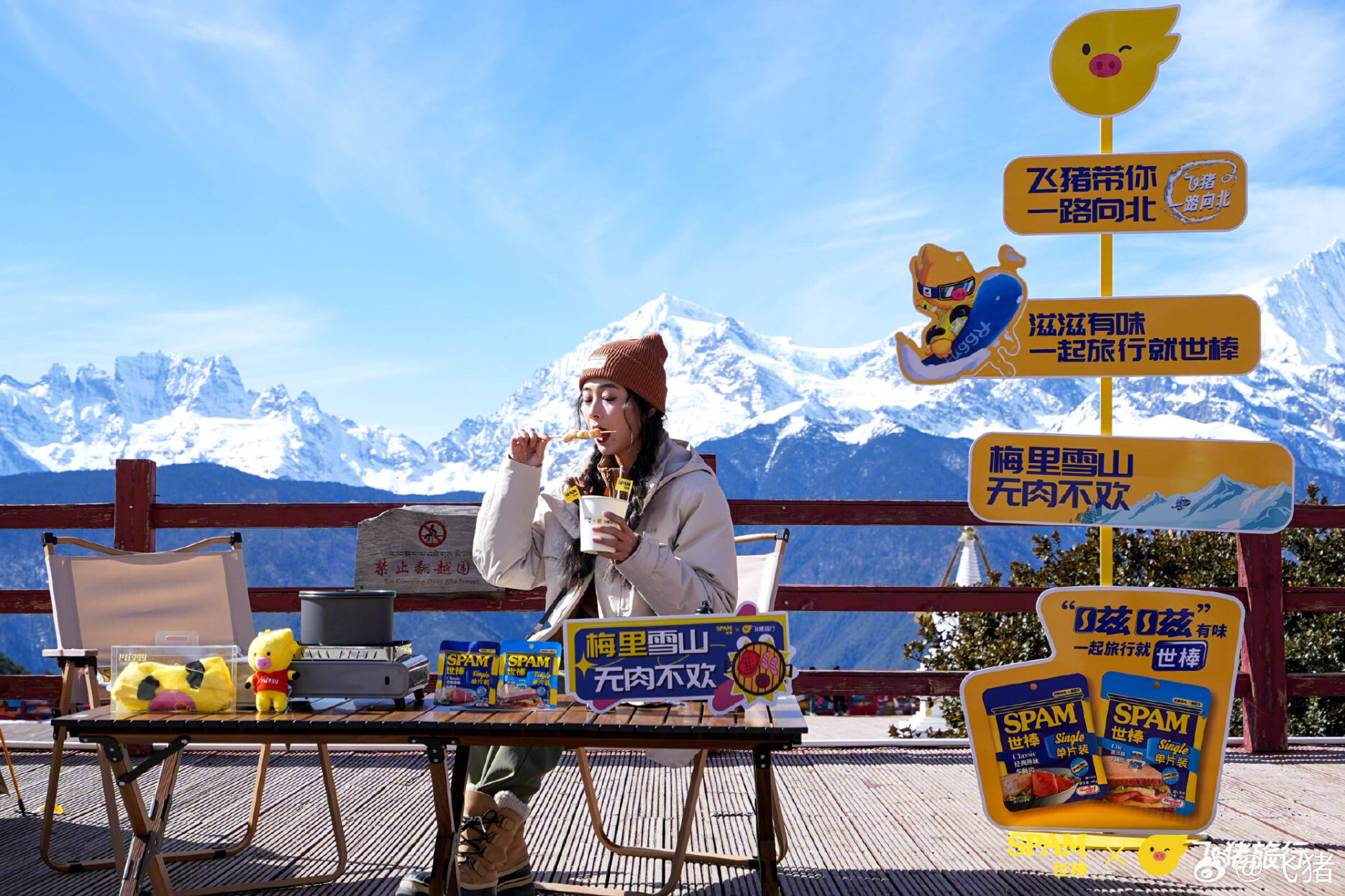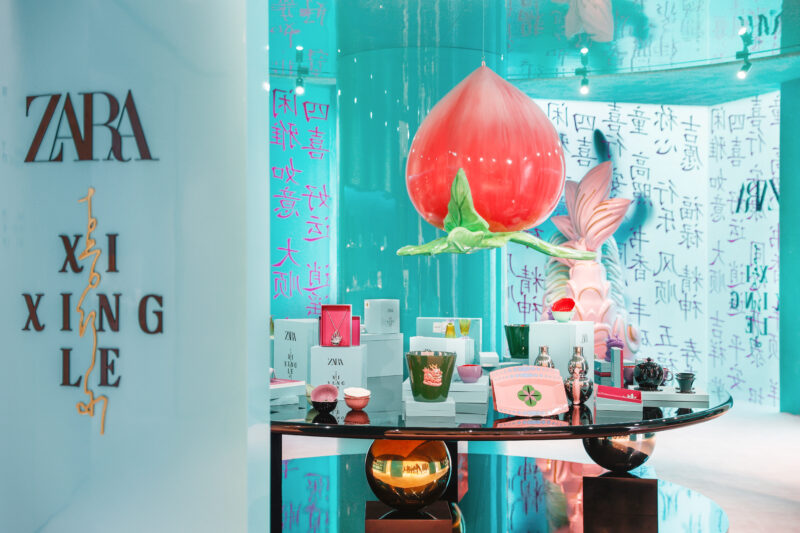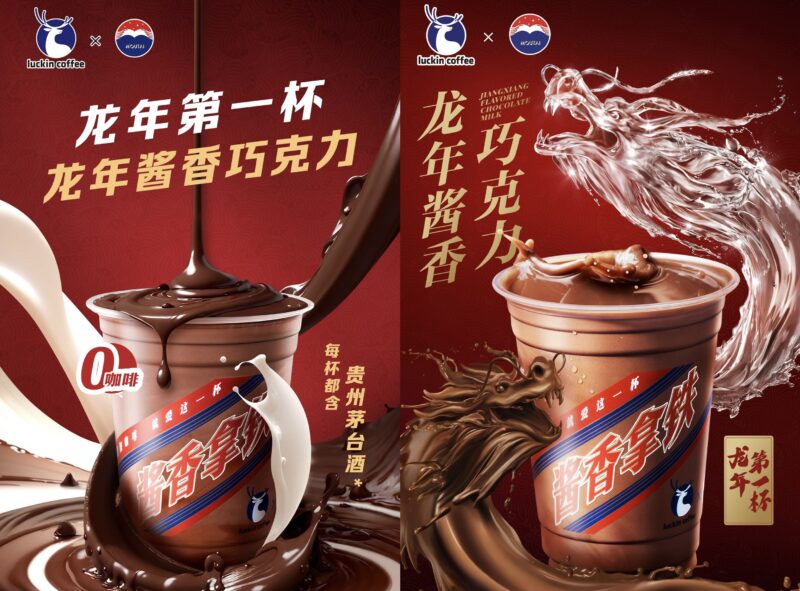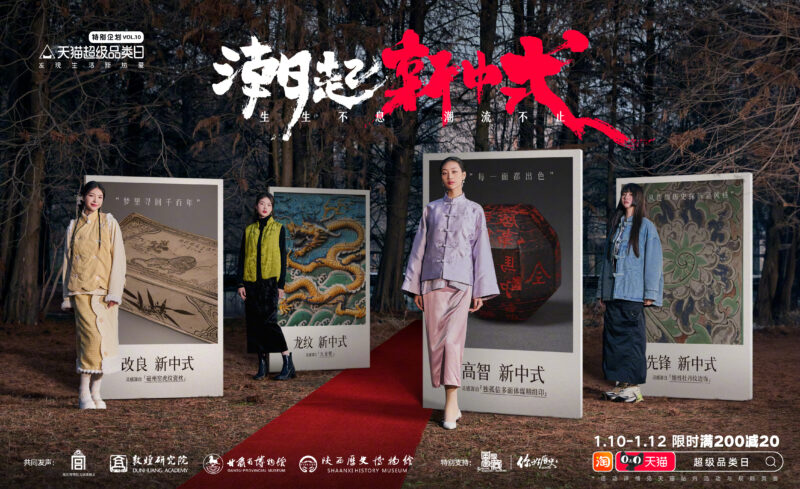Key Takeaways
- The Alibaba-owned online travel agency Fliggy took advantage of the winter travel craze to embark on a travelling campaign.
- Starting in Hangzhou, the campaign bus stopped in major snow sports destinations, including Songhua Lake in Jilin.
- The campaign came at the perfect time to cash in on “Harbin Fever” and “Dongbei Renaissance”, which capture the enthusiasm for all things Northeastern and snowy.
As a record-breaking chill descended upon China’s Northeastern provinces in December, a little yellow van was traversing the highways of southwestern China, making its way determinedly northwards, into the eye of the storm. “All the Way North” (一路向北”) was the fitting slogan for this vehicle’s 8000-kilometre road trip, undertaken by none other than Fliggy (“Flying pig” 飞猪 in Chinese), Alibaba’s online travel agency.
Fliggy provided coffee, gifts, and a ray of positivity to those who braved the cold
Starting in Hangzhou, home to the Alibaba headquarters, the Fliggy Bus travelled all the way to Harbin, China’s northernmost provincial capital, across two and a half weeks from December 16 to January 3. Along the way, Fliggy checked in at Yunnan’ Meili mountain range and Songhua Lake in Jilin, providing coffee, gifts, and a ray of positivity to those who braved the cold for outdoor adventures. In partnership with the definitive lunch meat SPAM, Fliggy took on the role of explorer for this campaign to whip up excitement for snow and ice tourism.
All roads lead north
North is hotter than ever this year. Well, not literally. But in China’s social media terms (火), its temperature is off the charts. Harbin in particular, famous for its ice sculptures, has been enjoying unprecedented popularity, spawning memes galore online and sending local tourism revenue through the roof.
Why this long-established tourist destination suddenly rose to the forefront of internet culture this winter could be down to a few reasons. One is the growing momentum behind the Dongbei Renaissance, a decades-long literary movement celebrating the culture of China’s former industrial heartland, which has now suddenly hit the forefront of the cultural zeitgeist. In essence, the Northeast – with its famous humour and other cultural quirks – has become cool.
Skiing, ice-skating and snowboarding are go-to holiday experiences for upper-middle-class consumers
At the same time, winter sports have been gaining more attention since the Beijing 2022 Winter Olympics brought them to a wider audience. Two years on, skiing, ice-skating and snowboarding are among the go-to holiday experiences for upper-middle-class consumers, boosted by strategic government investments in the sector.
Interestingly, Fliggy seemed to anticipate this “Harbin Fever” (尔滨热), hitting up the Northeastern provinces Jilin and Heilongjiang just as the New Year’s holiday travel craze took off. Fliggy became the perfect pit stop for winter sports enthusiasts at all 4 locations it visited, offering them the chance to pause, refuel and take in the scenery.
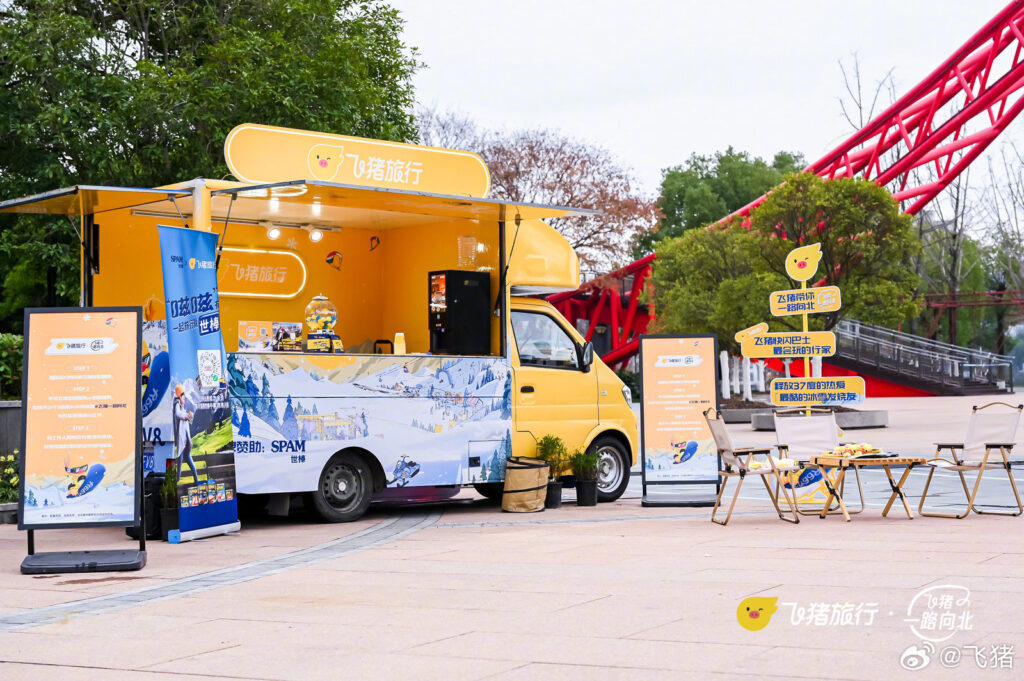
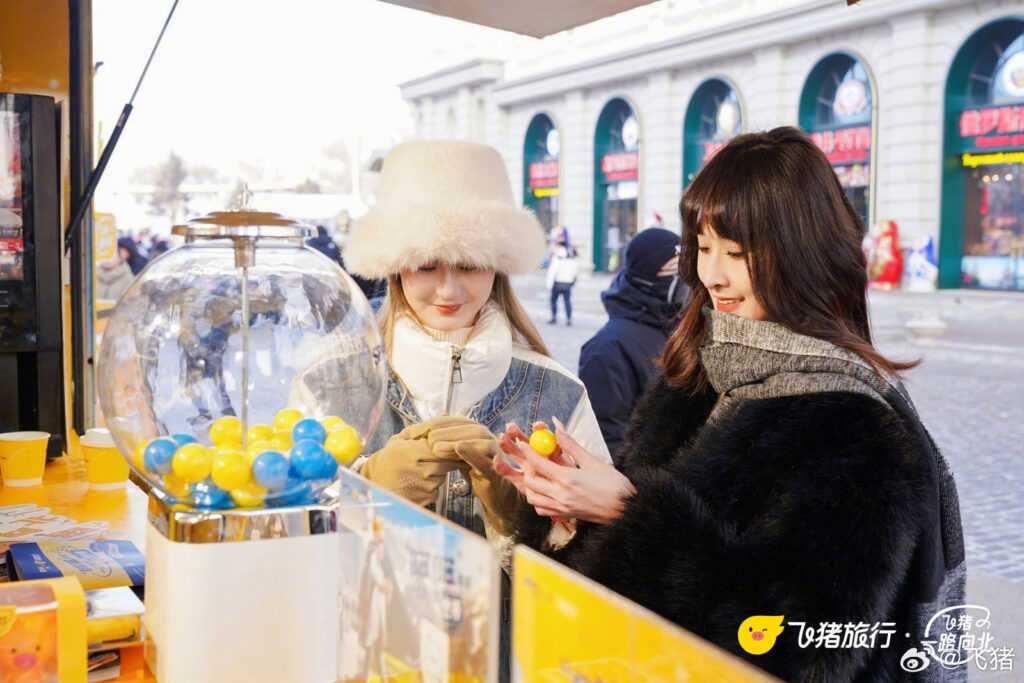

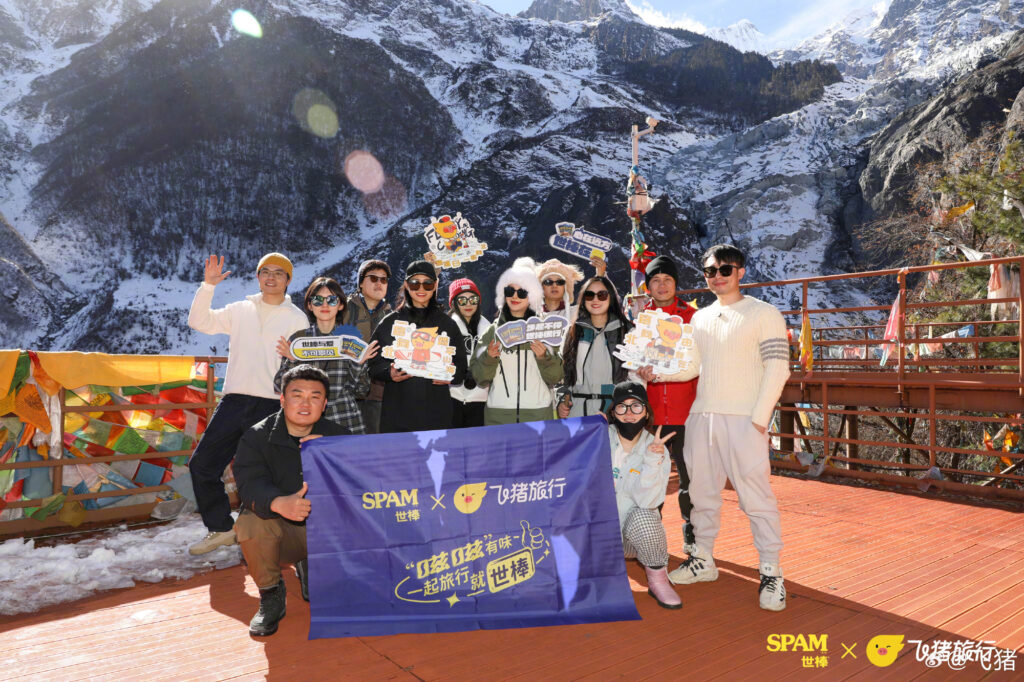
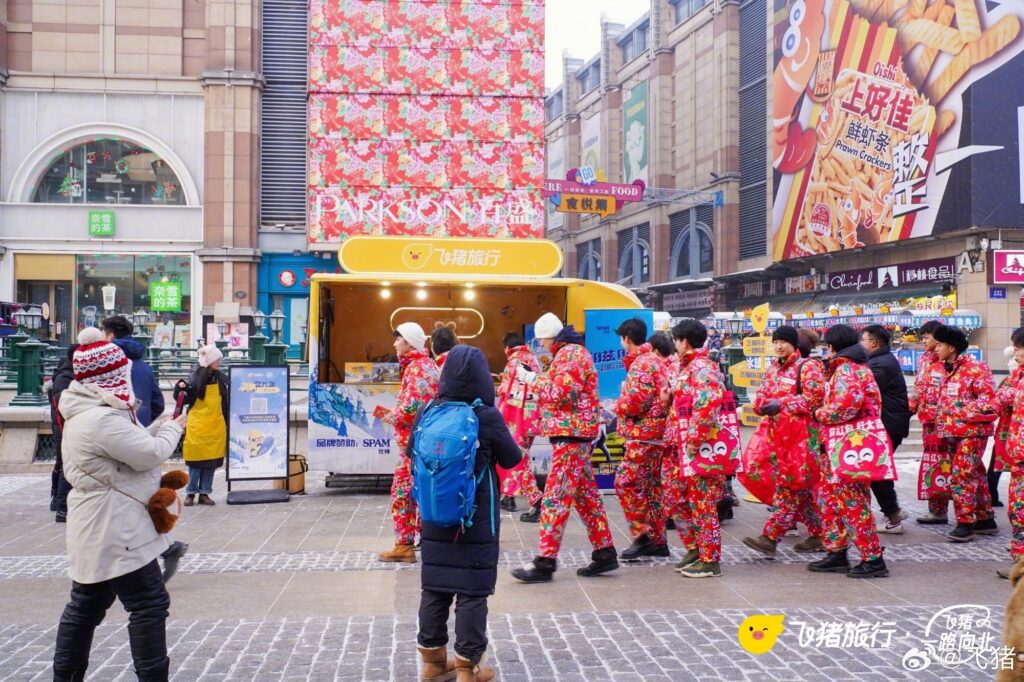
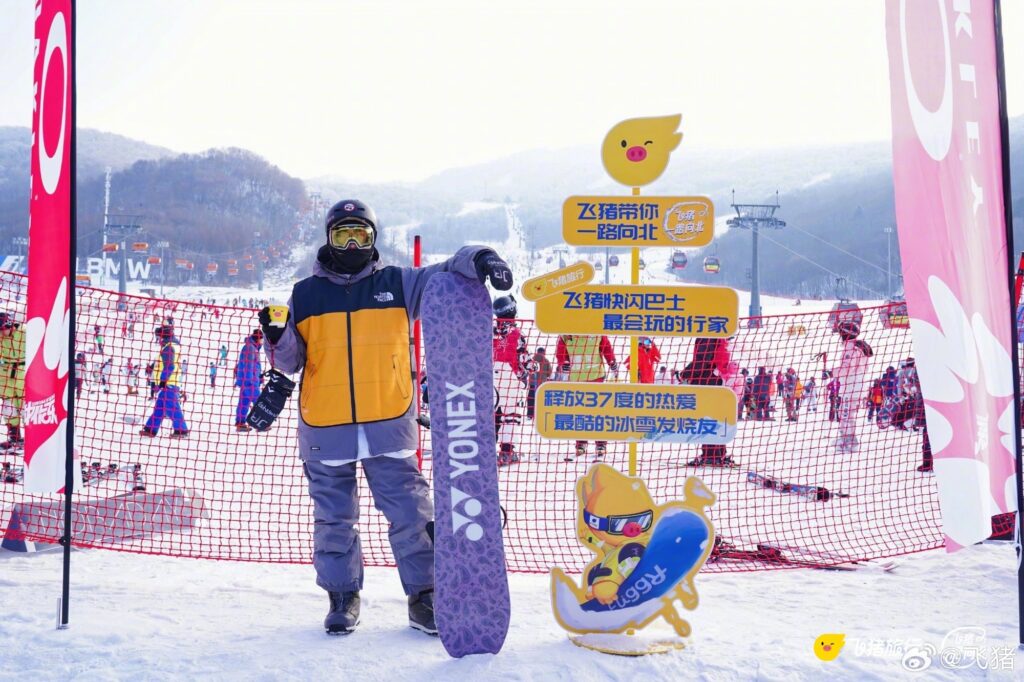
How brands can make use of travelling pop-ups
The Northeast – with its famous humour and other cultural quirks – has become cool
Travelling pop-ups are a great marketing tactic for a spate of brands, not just travel or outdoors specialists. As Spam did with Fliggy in this campaign, non-travel brands can partner up with a travel booking platform or outdoor clothing brand to help provide offline activities to consumers. Even a simple travelling coffee cart can be enough to create a sense of adventure, especially if it meets a consumer pain point and has an interactive component (like the gashapon-style prize draw on Fliggy’s bus).
Combining a travelling pop-up with a hot travel trend can take a marketing campaign to the next level. Brands should keep an eye on tourist spots and outdoor activities that are hotting up on Douyin and Xiaohongshu to rapidly launch local pop-up experiences. The next big social media travel trend is hard to predict, but brands don’t necessarily need to think too far outside the box. After all, Harbin has long been among China’s most popular destinations for international and domestic tourists. The trick is creating a seasonal focus for the offline campaign to motivate consumers and give it a “sense of ceremony” (仪式感) – a highly sought-after flavour among young Chinese.




